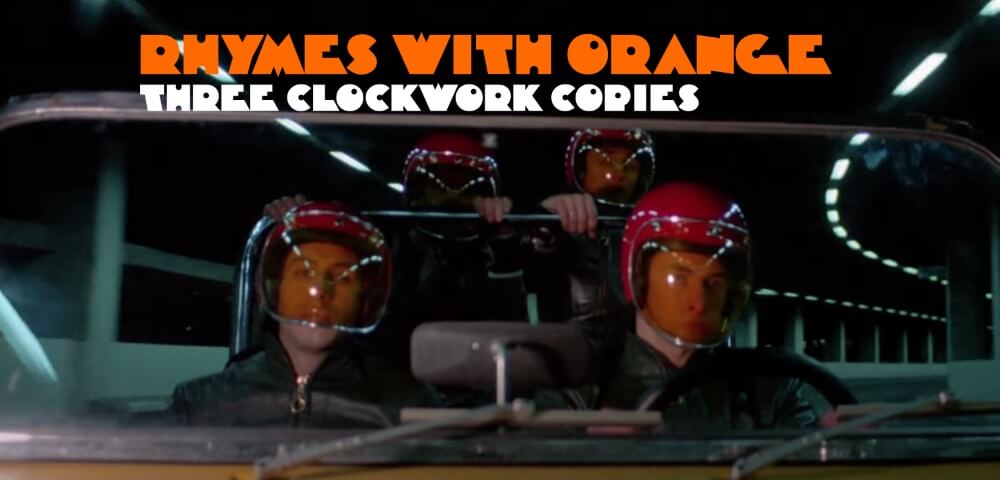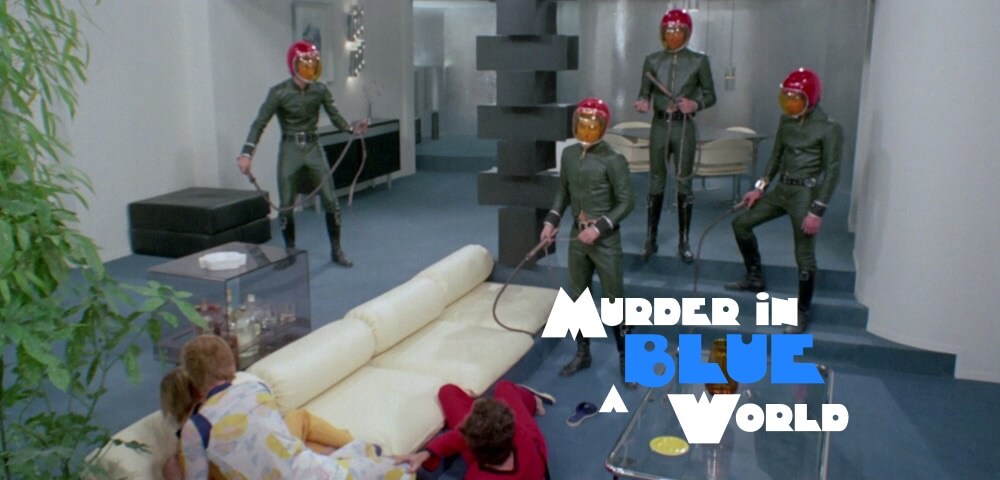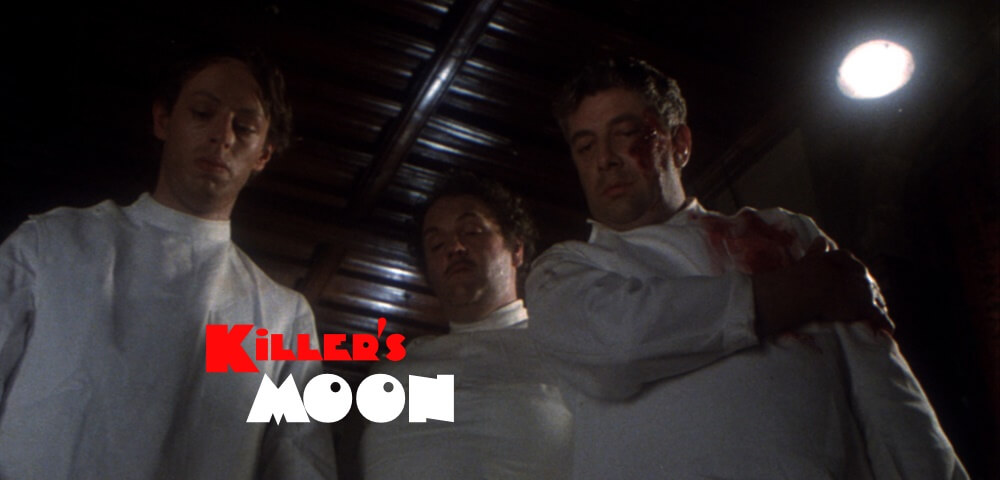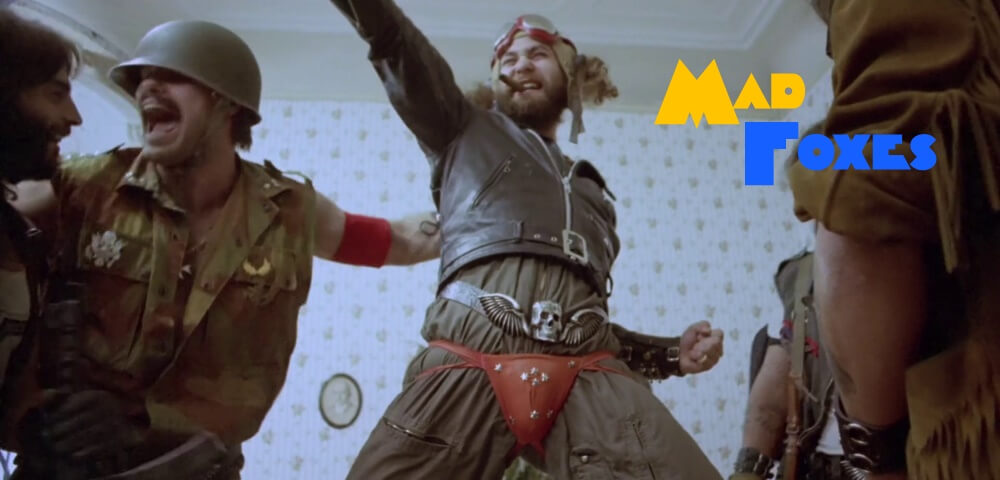
Based on the novel of the same name by Anthony Burgess, Stanley Kubrick’s A CLOCKWORK ORANGE exploded onto the silver screen in the winter of 1971 and 1972. A daring dystopian sci-fi crime film by a master filmmaker, it tells the story of Alexander DeLarge, a charismatic young criminal who is reformed by the system through the use of an experimental treatment rendering him averse to violent imagery and physically unable to commit acts of violence. Society is safer now that Alex has been conditioned, but at the cost of his free will. An intense examination into the nature of free will, morality and psychology, and a look into a recognizable near-future dystopia, the film was controversial upon release due to its graphic depictions of rape and “ultra-violence.” The disturbing nature of them is further heightened because we experience them through the point of view of the film’s charming sociopathic protagonist. Alex’s first-person narration, taken from the narrative style of the novel, is the voice in the voice-over that guides the film.
The film was famously withdrawn from British cinemas at Stanley Kubrick’s request. Reports of copycat violence, such as claims that the film was responsible for crimes like home invasions, rapes, street beatings and murder, as well as abuse from the tabloid press, and mounting public pressure, led the filmmaker, who was living in England at the time, to request its withdrawal. The film was in fact unavailable, at least officially, in the UK for over three decades. In 1992, 19 years after the withdrawal, when the legendary Scala Cinema dared to play a bootleg copy of the film, the resulting legal fallout (it would lose the court case against it for this illegal screening) caused the theater to close permanently.
The film would go on to become both a classic and a cult hit. The setpieces, imagery, use of music, costumes, decor and architecture, voiceover narration and dialogue, particularly its Nadsat dialect (created by Burgess in the novel) would become instantly recognizable trademarks and icons. Filmmakers wasted no time in incorporating elements of it into their own works, taking liberally from the film’s aesthetics, story and themes, to craft their own visions of ultra-violence. Join us this June for three films which stand in the long and deep shadows of A CLOCKWORK ORANGE. They say nothing RHYMES WITH ORANGE, but viddy well, my droogs, viddy well, as Spectacle presents THREE CLOCKWORK COPIES.

MURDER IN A BLUE WORLD
dir. Eloy de la Iglesia, 1973
Spain. 97 min.
In English.
SATURDAY, JUNE 8 – MIDNIGHT
MONDAY, JUNE 10 – 7:30 PM
FRIDAY, JUNE 14 – 10 PM
WEDNESDAY, JUNE 19 – 10 PM
In a near-future dystopia, violent youth gangs terrorize the populace, a nurse (played by Lolita herself Sue Lyon) brings relief to those destined to die and a doctor (Jean Sorel) conducts electroshock therapy on criminal offenders in effort to reform them, in Spectacle favorite Eloy de la Iglesia’s MURDER IN A BLUE WORLD, a film that borrows strongly from A CLOCKWORK ORANGE, taking its stylings and plot elements into the territory of a psychological thriller, crafting an atypical Spanish sci-fi giallo with splashes of lurid ultra-violence and a cheeky sense of humor.
Released under many titles, such as TO LOVE, PERHAPS TO DIE in its original U.S. release, A DROP OF BLOOD TO DIE LOVING from the translation of its original Spanish title UNA GOTA DE SANGRE PARA MORIR AMANDO, DEAD ANGEL in Germany, and notably A CLOCKWORK TERROR on VHS in the UK, it is the film in the series that wears its influence of A CLOCKWORK ORANGE most visibly and most brazenly, adopting the film’s imagery, setpieces, themes and settings, such as its notorious home invasion scene, a doctor working on a “cure for criminality” and its use of retro-futurist interior design and brutalist architecture.
“MURDER IN A BLUE WORLD isn’t A CLOCKWORK ORANGE with a fourth of the budget and even less potency. Rather, it’s the dream that Kubrick’s film might incite in your subconsciousness. Everything’s a bit warped, a bit different, not exactly how you remember it. Tangents and free association take hold over actualities. That’s what makes this film so fascinating — just the fact that it exists, that someone had the guts to produce and release it so quickly after A CLOCKWORK ORANGE, and do so with such poise. As a narrative, MURDER is a padded-out bore. But as a conversation piece, it’s a bizarre pop-culture paradox that incites you to watch. And then watch again.” – Joseph A. Ziemba

KILLER’S MOON
dir. Alan Birkinshaw, 1978
United Kingdom. 90 min.
In English.
SATURDAY, JUNE 1 – MIDNIGHT
FRIDAY, JUNE 7 – 10 PM
FRIDAY, JUNE 21 – MIDNIGHT
When the bus breaks down on a group of prim and proper British schoolgirls on a trip to the Lake District, they take shelter in a country manor, where they are menaced by four escaped singing psychopath sex offenders undergoing experimental dream therapy in what has been described, in several places by several commentators, as the sleaziest and most tasteless British film ever made, Alan Birkinsaw’s KILLER’S MOON.
Birkinsaw’s cheaply made and clumsily directed film takes elements of A CLOCKWORK ORANGE and brings them into the realm of the slasher film, albeit a mostly dour and downbeat slasher affair, occasionally punctuated by flashes of nightmarish day-for-night imagery. Its tone is gloomy and its humor and dialogue, supplied by feminist writer Fay Weldon, sister of the film’s director Alan Birkinsaw, is offbeat and shocking for political incorrectness and imaginings into man’s repressed desires.
“I have two theories about KILLER’S MOON – the first is that it really is the most tawdry piece of badly made, badly acted and badly misconceived cinema I’ve ever seen. The second is that it’s actually a brilliant comedy, written with a subtle flair by intelligent women as an attempt to bring down exploitation cinema from within. Unfortunately, the first theory must be the correct one. The acting is just so bad, the tasteless scenes are just so shockingly unbelievable, that it can’t be a satire. Can it?” – Chris Wood, British Horror Film

MAD FOXES
dir. Paul Grau, 1981
Spain/Switzerland. 80 min.
In English.
FRIDAY, JUNE 7 – MIDNIGHT
MONDAY, JUNE 10 – 10 PM
FRIDAY, JUNE 28 – MIDNIGHT
After a run-in with a gang of Neo-Nazi bikers, played by real-life members of the Hell’s Angels, Hal (Jose Gras) swears revenge on the thugs for the brutal beating he’s endured and the rape of his girlfriend. He enlists a karate school to take on the bikers unleashing a storm of violent brawls, firefights, stabbings, car chases and grenade explosions, in Paul Grau’s MAD FOXES, a deliciously pure piece of vintage Euro-Sleaze.
Released in Spain under the shockingly direct but accurate title of LOS VIOLADORES, MAD FOXES dispenses with A CLOCKWORK ORANGE’S philosophical concerns over free will and morality in a favor of a balls-to-the-wall action-packed exploitation film, propelled by motorcycle engines and a snappy funk soundtrack, it offers many scenes of downright sleaze, but one surprisingly wholesome lindy hop dance sequence.
“A brazenly incoherent mélange of kung fu, softcore porn, Nazi fetishism and bike film pegged loosely to a rape-revenge structure, albeit one caught in a garbled narrative loop”. -Alexandra Heller-Nicholas
